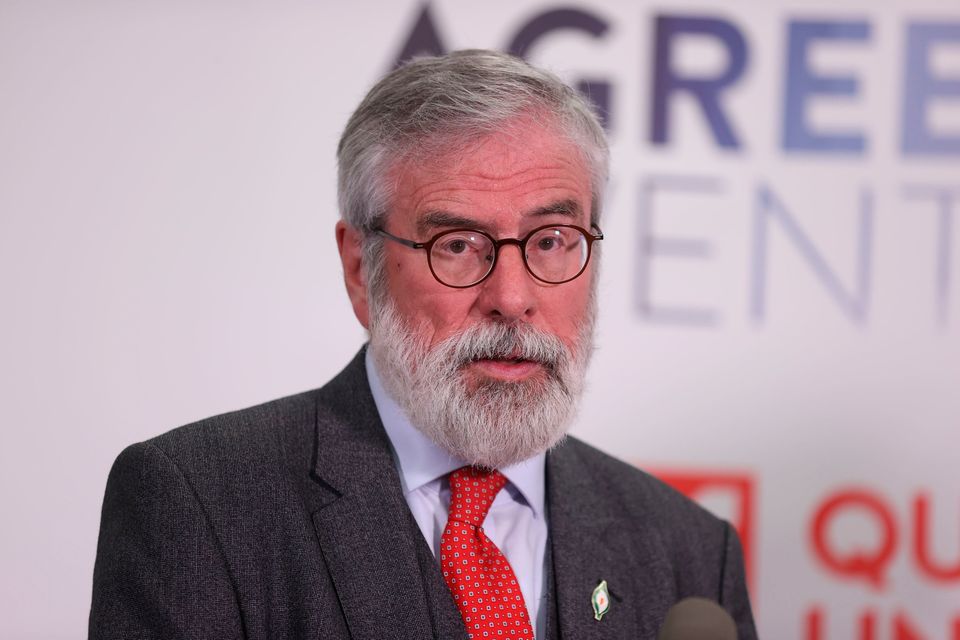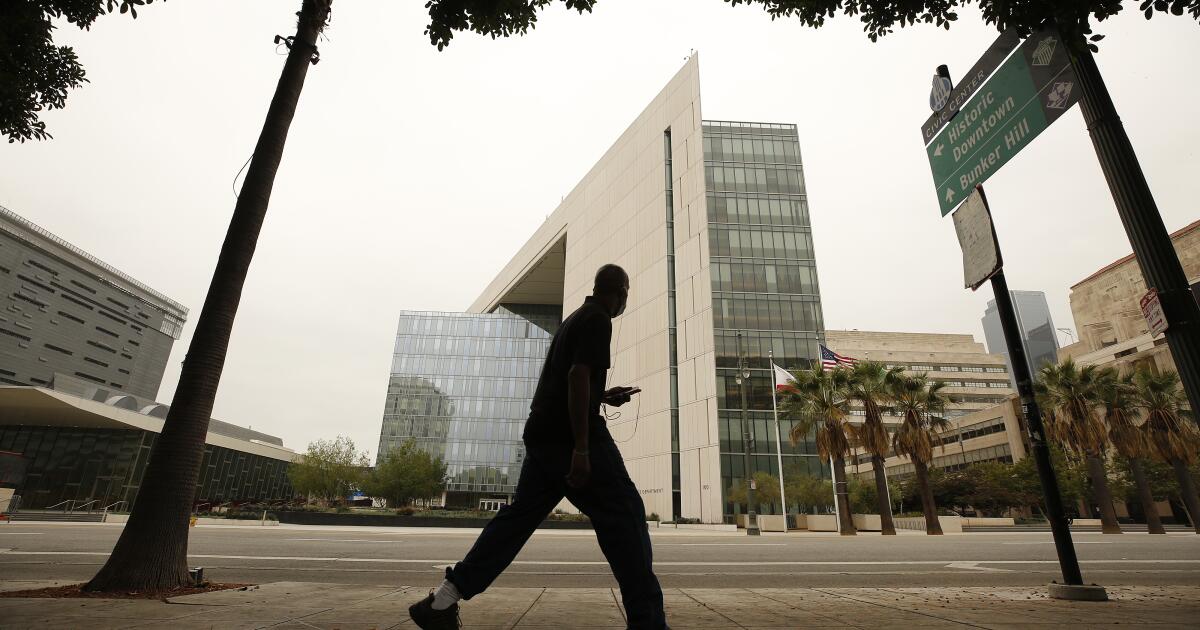Tempers frayed at talks involving the former minister, Gerry Adams, Martin McGuinness, Bertie Ahern and Brian Cowen
Secret files released as part of the State Papers by the National Archive revealed tense exchanges between the government and Sinn Féin about the IRA’s ongoing links to criminality amid mounting pressure to fully implement the terms of the Good Friday Agreement.
In early 2004, there was an attempt to kidnap dissident republican Bobby Tohill.
British prime minister Tony Blair’s chief of staff Jonathan Powell warned later that year the British were concerned about the IRA and its links to criminality.
Newspaper seller outside Northern Bank, Belfast, days after the robbery in December 2004. Photo: AP via Getty
On December 20, 2004, robbers stole £26.5m from the Northern Bank’s Belfast branch in an organised raid widely blamed on an IRA gang.
In March 2004, a government team led by Mr Ahern met a Sinn Féin delegation which included Mr Adams and Martin McGuinness.
Tensions were high in the wake of Mr McDowell’s public criticisms of the IRA and Sinn Féin – and one comment where he compared the party to the National Socialists in Germany in the 1930s.
In a bid to resolve outstanding issues and achieve progress under the Good Friday Agreement, the coalition team met Sinn Féin officials in Belfast in March 2004.
Civil servant notes of the meeting indicated that the Sinn Féin leadership immediately accused the government of trying to damage the party.
Gerry Adams speaks to media last year at Belfast conference marking 25th anniversary of Good Friday Agreement. Photo: PA
Mr Adams said that recent commentary by government ministers was seeking to “to undermine Sinn Féin by criminalising it”.
“[Mr Adams] was not concerned about the normal cut-and-thrust of politics, but personally resented being depicted as a criminal,” the notes said.
The taoiseach flatly denied any campaign by Dublin to undermine or damage Sinn Féin.
He knew the details, in particular the involvement of the Belfast Provisional IRA
But when Mr Adams cited specific newspapers reports about IRA criminality, Mr Ahern bluntly warned that the newspaper report was accurate. “He knew the details, in particular the involvement of the Belfast Provisional IRA,” the notes said.
The exchanges between the government and Sinn Féin teams became heated.
At one point a civil servant noted that Mr Cowen had to interject to insist that respect be shown for the taoiseach.
Mr McDowell, who had until this point played a lower key role in the meeting, warned that the criminality links of the IRA could not be denied.
“I know it and you know it. Do not try and cod me,” Mr McDowell warned the Sinn Féin delegation.
Both Mr Adams and Mr McGuinness vehemently denied any knowledge of what Mr McDowell was talking about – and an apparently heated row erupted between the trio.
Instances of Sinn Féin misbehaviour
The taoiseach and Mr Cowen then got involved and claimed that Sinn Féin had tried to suggest corruption within Fianna Fáil.
Mr Ahern detailed what he described as “instances of Sinn Féin misbehaviour”.
Sinn Féin, for its part, knew it was central to the full implementation of the Good Friday Agreement and that both the British and Irish Governments needed them.
Det Gda Jerry McCabe was shot dead in a Post Office raid in Adare, Co Limerick, in 1996
The party was adamant that the IRA members convicted of killing Detective Garda Jerry McCabe during a non-sanctioned robbery in Adare, Co Limerick, in 1996 should come under the terms of the Good Friday Agreement and therefore be eligible for early release.
The government had opposed this interpretation.
They insisted the four men convicted of the Adare armed robbery and killing did not qualify for early release under the Good Friday Agreement – a stance that raised eyebrows in London and Belfast where there was opposition to republican and loyalist terrorists convicted of murders being released.
A legal challenge was taken by the government to the Supreme Court against the early releases with the court ruling in favour of the State.
In 2004, the release of the four men had become a central issue in the talks.
Mr McDowell wrote in June 2004 to Det Gda McCabe’s widow, Ann, about developments.
I very much realise that what I am relating to you is of small comfort to you in your continuing great loss
He vowed that the releases would only be considered as part of a final and total end to the violence in Northern Ireland.
“[It would be as part of] the complete and permanent ending of all aspects of IRA paramilitary and criminal activity,” he wrote.
“I very much realise that what I am relating to you is of small comfort to you in your continuing great loss.
“I trust you will be able to see that the Government’s objective is nothing short of the realisation of lasting peace on the island of Ireland.”
However, as it transpired, it would be another three years before the first of the Adare killers were released from custody.
They were released when they had completed their full sentences with the releases taking place between 2007 and 2009.














:max_bytes(150000):strip_icc()/Health-GettyImages-1498955417-9f25b759ebea42de90770bcbdda53d2f.jpg?w=120&resize=120,86&ssl=1)







